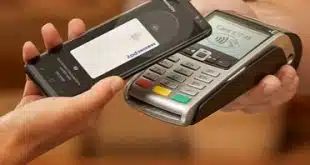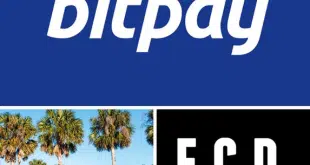Bling Nation Ltd. on Wednesday said it has completed a 10-day test of its alternative-payment platform, known as the Community Payment Service. The Palo Alto, Calif.-based company also said it plans to continue testing its system preparatory to a rollout. Bling Nation's platform creates closed-loop transaction networks linking local merchants and local banks in a community to allow on-us processing of debit transactions (Digital Transactions News, Nov. 19, 2008). The local networks bypass national and international networks like Visa Inc. and MasterCard Inc. In the test, some 32 employees of a Palo Alto company that operates an online social network used Bling Nation's contactless BlingTags to perform transactions at local merchants. The identities of the participating bank and merchants were not immediately available. Each tag was loaded with $50 of value. The group performed on average 3.9 transactions each, with an average ticket of $11.99, Bling Nation said. All group members said the activation process and the first transaction were “easy,” the processor said, while nearly all said they would continue using the BlingTags if they were available. “The results garnered from our recent beta group demonstrate consumer desire for an alternate payment method and network,” said Wences Casares, co-chief executive of Bling Nation, in a statement. “Our recent beta test group indicates the willingness to embrace this new payment option.” Bling Nation refuses to identify the social network. Facebook, an online network that has enjoyed red-hot growth over the past couple of years, is based in Palo Alto, and its headquarters is roughly two blocks away from that of Bling Nation. When asked via e-mail about whether Facebook employees participated in the test, a spokesperson said, “There is nothing to share on our side.” Founded last year, Bling Nation is aimed at community banks that hold both consumer and merchant accounts, creating the potential for a closed-loop system in which transactions performed by the bank's customers at participating merchants that also keep accounts at the bank can be cleared and settled entirely within the bank. Currently, such local transactions performed on bank cards require handling by multiple switches and processors, adding to costs for both financial institutions and merchants, Bling Nation argues. The proprietary system, which relies on so-called contactless stickers that consumers can affix to their cell phones, charges a 1.5% fee to merchants for each transaction. Of that amount, Bling Nation says it collects 30 basis points as its network fee, with the bank pocketing the remainder as both issuer and acquirer, less an estimated 25 basis points for issuing costs, primarily for the contactless inlays. On a $40 Bling Nation transaction, for example, the merchant will pay 60 cents. Bling Nation will take 12 cents, while the bank will get 38 cents, including 18 cents as an acquiring fee and 20 cents as the issuer. The bank incurs about 10 cents in issuing costs. By contrast, the same transaction on a network-branded signature-debit card would cost merchants 3%, or $1.20, according to Bling Nation research. Because of acquirer, third-party processor, and network fees, the community bank issuer ends up collecting only 9 cents of that amount, the company says. With the money saved, local merchants and banks can afford to promote the Bling Nation system with loyalty and rewards programs, it argues. The platform connects to banks via an ATM switch, an online-banking provider, or a core processor. Merchants are equipped with a so-called Bling Tag Reader, a terminal that can link to the contactless stickers, or Bling Tags, to complete transactions. The readers link wirelessly to the company's processing platform. After each transaction, the platform sends a text message to the consumer's phone to confirm the transaction and update the consumer's balance. The tags do not include account data.
Check Also
Jack Henry’s Mastercard Move and other Digital Transactions News briefs from 3/18/25
Bank processor Jack Henry & Associates Inc. extended its work with Mastercard Inc. to now offer Mastercard …




